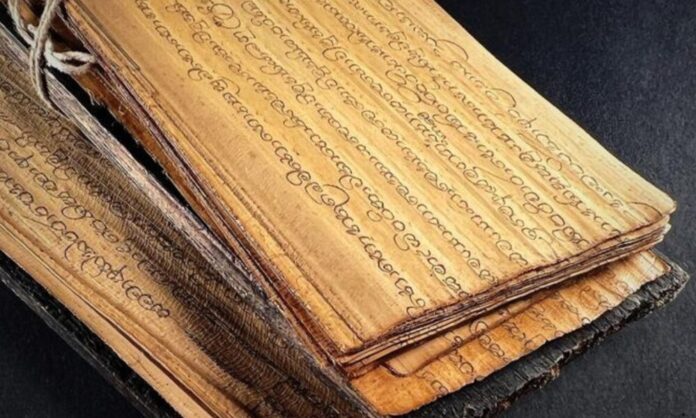By: Staff Writer
July 06, Colombo (LNW): In a major step toward preserving and rediscovering Sri Lanka’s colonial intellectual heritage, the Cabinet of Ministers has greenlit a groundbreaking research project focusing on Dutch-era palm leaf manuscripts of Sri Lankan origin.
The initiative, spearheaded by the Department of National Archives, comes after successfully securing a competitive research grant of €384,248 (approximately Rs. 140 million) from the Netherlands Research Council.
This project—titled “Whose Knowledge, Whose Values? Palm Leaf Manuscripts and the Question of Colonial Collections in Dutch Heritage Institutions”—will span from 2025 to 2029 and is part of a wider thematic academic inquiry into the provenance, ownership, and cultural significance of colonial-era knowledge artifacts.
The project brings together six partner institutions, including Sri Lanka’s Department of National Archives and leading academic entities such as the Free Universities of the Netherlands.
It has already received clearance from the Attorney General’s Department, with endorsements from the Ministry of Foreign Affairs, the Ministry of Foreign Employment and Tourism, and the External Resources Department.
The proposal was submitted by Prof. Hiniduma Sunil Senevi, Minister of Buddhism, Religious Affairs, and Cultural Affairs, and approved by the Cabinet this week.
The focus of this initiative lies in the rediscovery, documentation, and academic study of palm leaf and ola leaf manuscripts that were created or collected during the Dutch colonial regime in Sri Lanka, which lasted from 1658 to 1796.
These manuscripts—often written in Sinhala, Tamil, or Pali—covered a wide range of subjects, including local laws, Buddhist teachings, Ayurveda, astrology, and regional administrative practices.
During their 138-year rule in Sri Lanka, the Dutch East India Company (VOC) established a complex administrative and legal structure in the coastal areas they controlled. Local scholars and scribes recorded traditional and administrative knowledge on palm leaves, some of which were later collected by Dutch officials and shipped to the Netherlands.
These documents today remain stored in libraries and museums such as the Leiden University Library and the National Archives of the Netherlands, often with minimal contextualization or academic examination.
The current project aims to bridge that gap, facilitating joint research, digital archiving, and contextual interpretation of these manuscripts to better understand their origins and historical significance. It also addresses broader ethical questions regarding colonial-era collections and their rightful ownership or stewardship.By bringing these ancient texts into modern scholarly discourse, Sri Lanka hopes to not only reclaim a part of its lost intellectual legacy but also to contribute to global debates on cultural restitution and historical justice.

